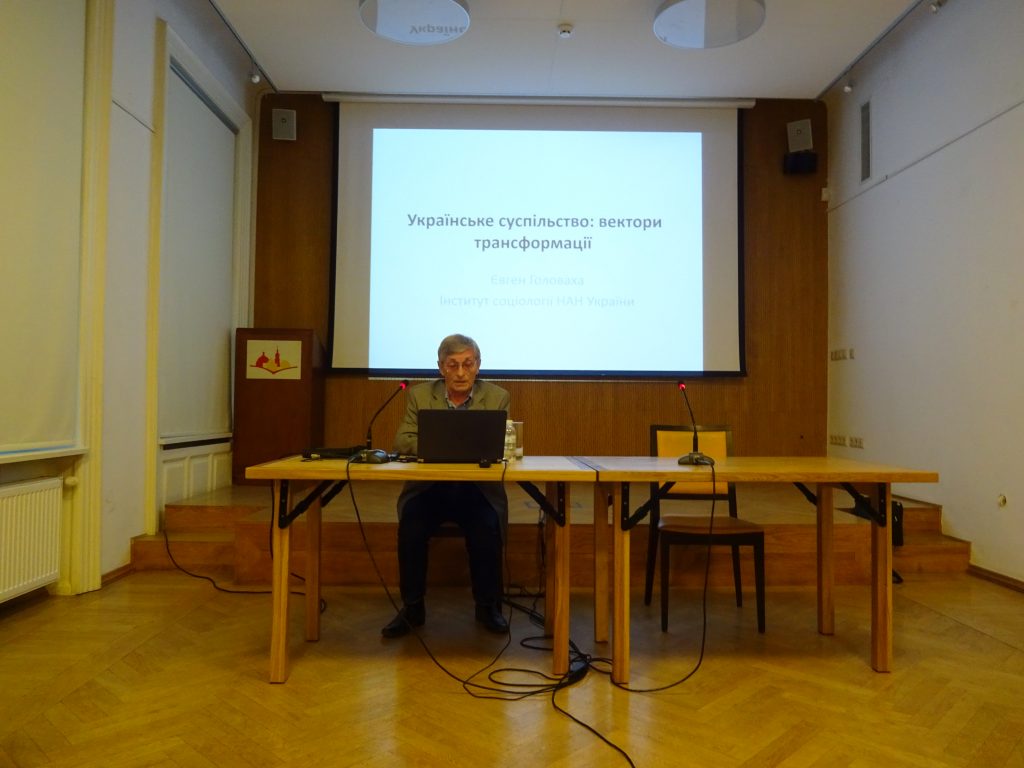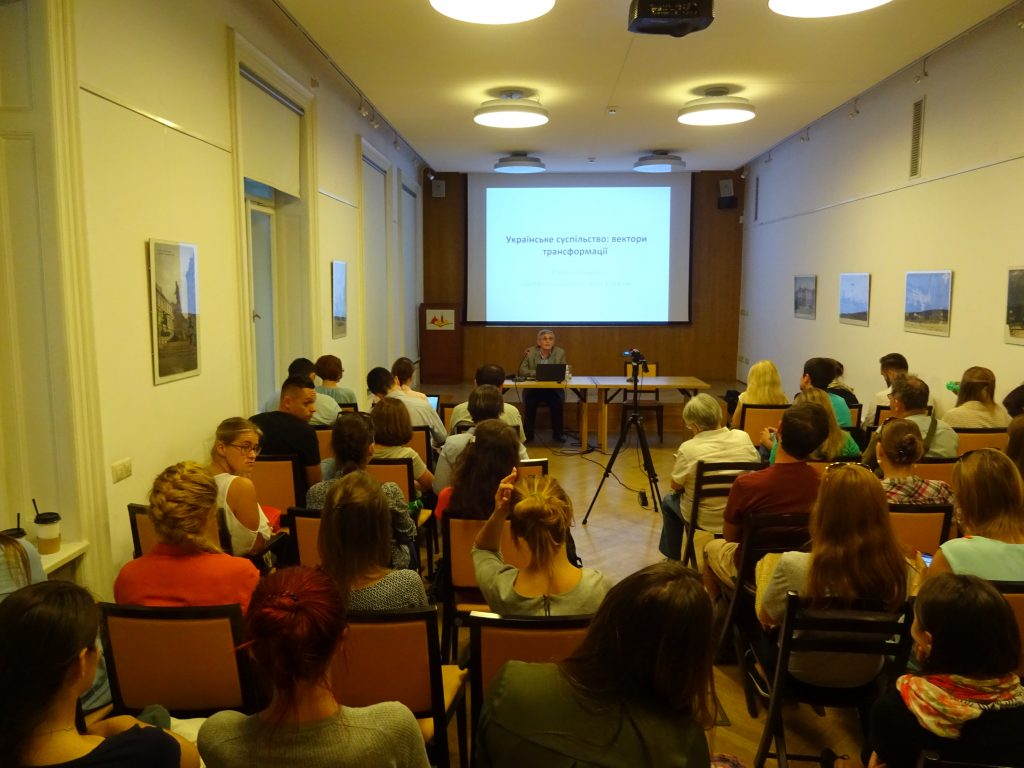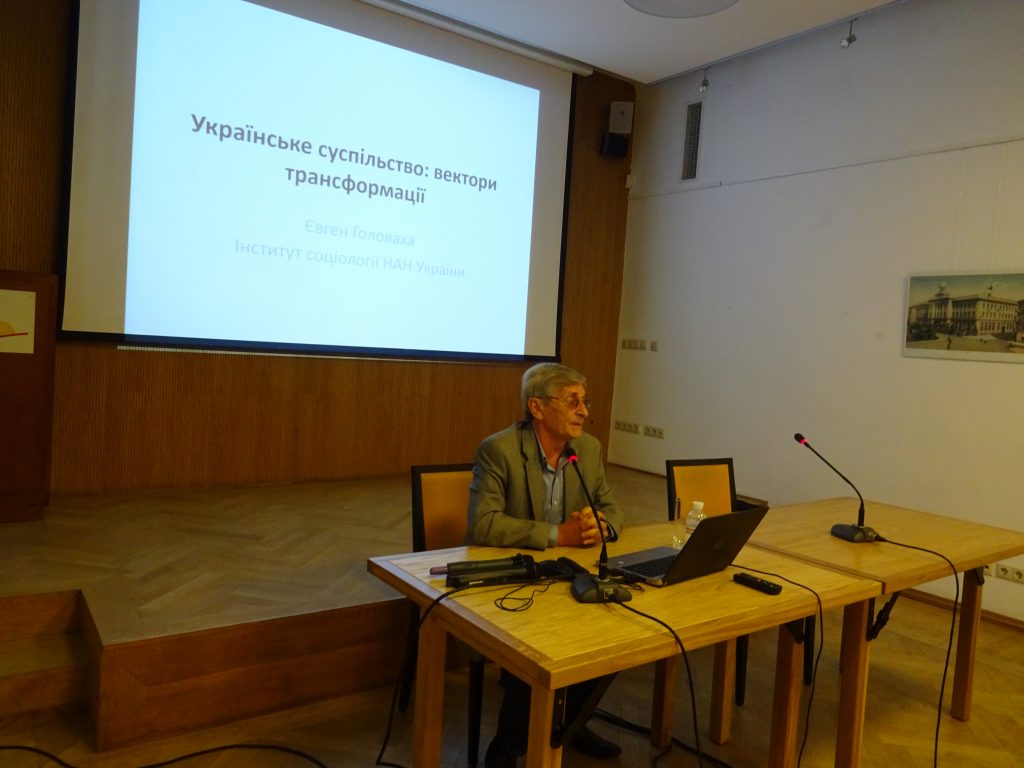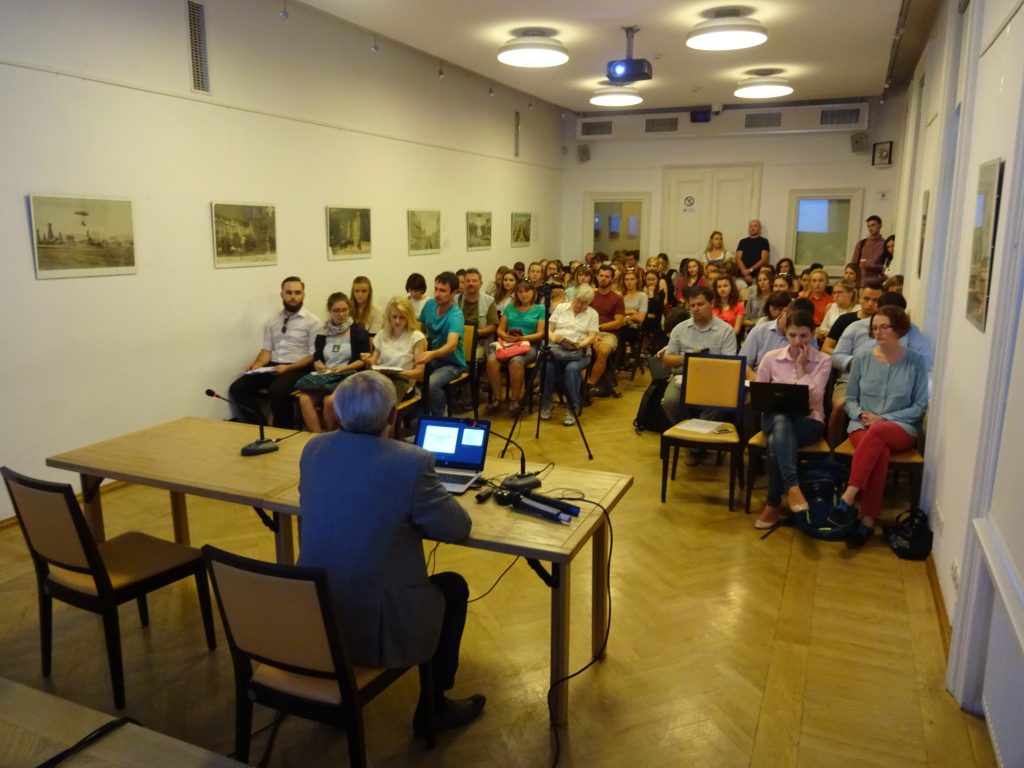Ukrainian Society: Transformation Vectors
14.9.2016, 18:30
Center for Urban History, Lviv
The process of changes in the social order of the country and everyday life of its citizens taking place over the last twenty five years is complicated and controversial. The changes are reflected in the minds of people through certain emotional responses, judgements, opinions, and attitudes on different social phenomena, processes, and institutes. Surveys record changes in the structure of revenues and lifestyles, in the trust towards state institutes, in the map of values, in social distance to different ethnic groups, in electoral and political convictions, in the levels of cynicism, authoritarianism, and distress, in the spread of social phobias, in the attitudes on the geopolitical course, etc.
Ukrainian society is in the state of spontaneous post-Soviet transformation, thus becoming a society with the double institutional system, anonymous demoralization, and social disengagement, a "trustless society" with the negative social capital and opposing identities. The signs of the recurrently declared transition show changes in some integral parameters of social-psychological state of people, such as in anxiety indices, in destabilizing protest capacity, in national distancing or social well-being. They are all developed on the basis of the data from the "Ukrainian Society" monitoring conducted by the Institute of Sociology of the NAS of Ukraine since 1992. The parameters help identify and understand major development trends for the Ukrainian society over the last decades and define the vectors for its further transformation.
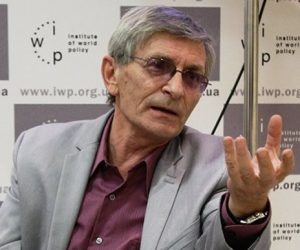
Yevhen Holovakha
is a professor, Doctor of Philosophy, Chair of the Department of Methodology and Methods of Sociology, deputy director in research of the Institute of Sociology of the NAS of Ukraine, editor-in-chief of the academic journal “Sociology: Theory, Methods, Marketing”. He graduated from the Psychology faculty of Lomonosov University in Moscow and the post-graduate studies at the Institute of Philosophy of the Academy of Sciences of the Ukrainian SSR. In different years, he was member of the Committee for Political Socialization and Political Education of the International Association of Political Sciences, member of European Association of Experimental Social Psychology, American Association for Personality Research and Social Psychology.
The event is part of the lectures and discussions program "Transformations in East Europe: 27 Years Later".

